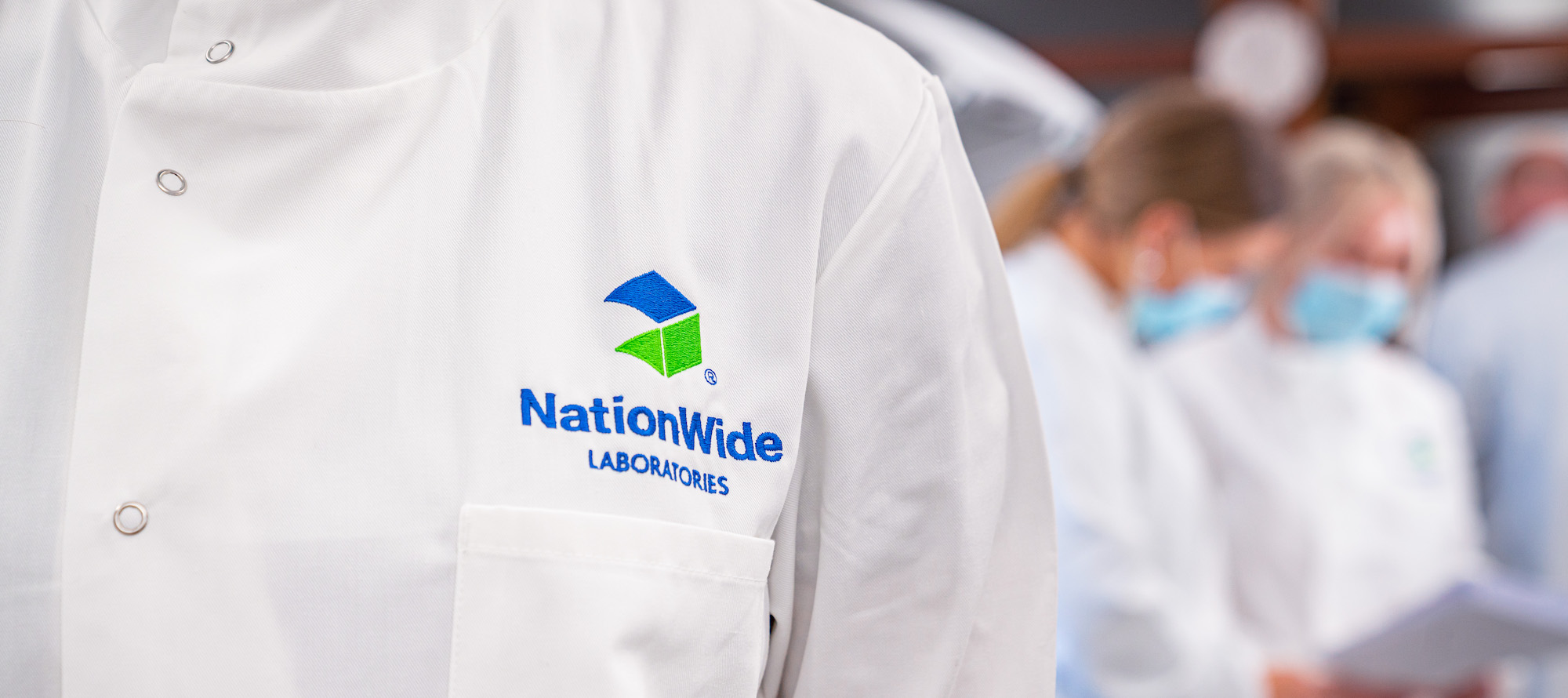
NationWide Laboratories now offers Nu.Q® Vet Cancer Test in the UK. It is a simple, affordable, easy-to-use blood test which can be used as part of a wellness check for older dogs as well as younger dogs with an increased risk of developing cancer in their lifetimes, such as those with a familial history and certain breeds. By measuring and analysing nucleosomes in the DNA, the Nu.Q® Vet Cancer Test can identify patients who may have cancer. This must be confirmed by follow up procedures, for example, a biopsy or a scan. Alongside other routine blood work and imaging, this test may help find cancer at an early stage, before symptoms appear, allowing for a better chance at effective treatment.
Sampling instructions and FAQs: download the brochure.
The Nu.Q® Vet Cancer Screening Test is best suited to be used with the annual wellness check for older dogs (7 years and older) and can also be a complementary test for younger dogs (4 years and older) with an increased risk for developing cancer in their lifetimes such as, Golden Retriever, Labrador Retriever, French Bulldog, Boxer, Beagle, German Shepherd, Bernese Mountain Dog, Siberian Husky, Rottweiler, Great Dane, Irish Wolfhound, Scottish Deerhound, Mastiff, Flatcoated Retriever.
The Nu.Q® Vet Cancer Screening Test measures the level of nucleosomes that are circulating in the blood. When a patient has cancer, nucleosomes from those cancer cells are released into the blood and can be measured using antibodies that are specific to nucleosomes.
The Nu.Q® Vet Cancer Test can detect cancers such as lymphoma and hemangiosarcoma, even at early stages. Preliminary data suggests that this screening test can also Detect some instances of Mast Cell tumours, malignant melanomas and Histiocytic Sarcoma. The current Nu.Q® Vet Cancer Test more reliably detects systemic cancers rather than soft tissue or localized cancers.
No, the release of nucleosomes into the blood is common to many different types of cancers. Additional tests are necessary to diagnose cancer and determine the source of the circulating nucleosomes.
One of the advantages to the Nu.Q® Vet Cancer Test is that it is non-invasive, only requiring a blood sample.
Dogs who have not been fasted for 4 hours may have slightly elevated levels when compared to fasted samples less than 4 hours in the same dog. If your dog has not been fasted, they may end up in the moderate risk zone even though they are healthy. If this is the case, please fast your dog for 4 hours and repeat the test at a later date. If the level remains elevated, then additional testing may be necessary.
Inflammatory diseases such as immune-mediated disease, systemic inflammation, sepsis and trauma can also cause elevated nucleosome levels. This test will not differentiate between patients sick with systemic inflammatory mediated illness from those sick with cancer. For this reason, we do not recommend running the test in patients that could have these types of diseases. However, the test may be run in dogs without systemic inflammation but with other illness such as hypothyroidism, renal disease, osteoarthritis, mild or moderate pyoderma or other such minor illnesses.
Green Level – Cancer suspicion: Low
Nu.Q® Vet Cancer Test results at the low risk level are consistent with those found in healthy animals over the age of 1 year, and all genders. Maintain wellness check schedule and educate pet owners on early cancer signs. Retest at the next visit. If clinically indicated, additional tests such as a CBC, Chemistry, Urinalysis, Cytology/ Biopsy, and/or Imaging may be needed to confirm or deny the suspicion of cancer in your patient.
Yellow level – Cancer suspicion: Moderate
Nu.Q® Vet Cancer Test results in the caution zone may have a number of contributing factors. If the patient has been fasted, and is otherwise healthy, retest in 2-4 weeks ensuring a 4-hour fast. If the patient has not been fasted, and is otherwise healthy, repeat the test at your earliest convenience ensuring a 4-hour fast. If the Nu.Q® score remains elevated after retest, please refer to “high risk” actions for patient information to consider before conducting more costly or invasive procedures.
Orange level – Cancer Suspicion: High to Very High
Nu.Q® Vet Cancer Test results at the high-risk level are consistent with an increased risk of cancer in healthy animals over the age of 1 year, and all genders. Review medical history for previous conditions. Check for lumps, swollen lymph nodes, or signs of pains. Look for elevated white blood cell counts indicating inflammation. If medical history review is inconclusive, please call or email NationWide Laboratories at Cambridge to consult on your complex case before conducting invasive or costly procedures.
For more information, please get in touch with us now.
Please note: the samples will be processed by our Cambridge laboratory, so please send them directly to:
NationWide Specialist Laboratories
Units S5-S6 The Saxon Building,
Eastern Counties Leather Industrial Estate,
London Road,
Pampisford,
Cambridge,
CB22 3FJ
Clinical evidence and case studies: download the brochure
References
Wilson-Robles, H.M., Bygott, T., Kelly, T.K. et al. Evaluation of plasma nucleosome concentrations in dogs with a variety of common cancers and in healthy dogs. BMC Vet Res 18, 329 (2022). https://doi.org/10.1186/s12917-022-03429-8
Wilson-Robles, H., Miller, T., Jarvis, J. et al. Characterizing circulating nucleosomes in the plasma of dogs with hemangiosarcoma. BMC Vet Res 17, 231 (2021). https://doi.org/10.1186/s12917-021-02934-6
Dolan, C., Miller, T., Jill, J. et al. Characterizing circulating nucleosomes in the plasma of dogs with lymphoma. BMC Vet Res 17, 276 (2021). https://doi.org/10.1186/s12917-021-02991-x